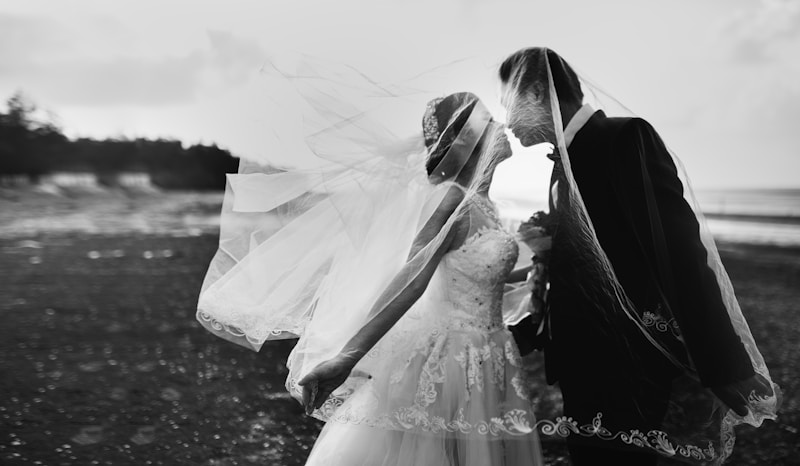The Sustainable Elegance: Exploring Organic Materials in Wedding Dress Production
The Sustainable Elegance: Exploring Organic Materials in Wedding Dress Production
Understanding Organic Materials in Wedding Dress Production
As the world of fashion becomes increasingly aware of environmental impacts, the wedding industry is also shifting towards sustainable practices. One of the most significant changes is the use of organic materials in wedding dress production. This article will explore the various organic materials available, their benefits, and why brides should consider them when choosing the perfect wedding dress.
Why Choose Organic Materials?
Choosing organic materials for wedding dresses is not only a step towards sustainability but also a choice that reflects a bride’s values and commitment to the planet. Organic fabrics are produced without toxins, pesticides, or synthetic fertilizers, making them healthier for both the environment and the wearers. Here are some reasons why brides should consider organic materials:
- Environmental Impact: Organic farming methods reduce pollution and conserve water.
- Health Benefits: Organic materials are free from harmful chemicals that may irritate the skin.
- Durability: High-quality organic fabrics often have a longer lifespan than their conventional counterparts.
Types of Organic Materials Used in Wedding Dresses
Various organic materials can be used to create stunning wedding dresses. Below is a table summarizing some of the most popular organic fabrics:
| Organic Fabric | Characteristics |
| Organic Cotton | Soft, breathable, and widely available; ideal for various wedding dress styles. |
| Organic Linen | Lightweight and elegant; perfect for a vintage or bohemian look. |
| Organic Silk | Luxurious sheen and drape; made from silk worms raised without harmful chemicals. |
| Bamboo | Soft and plush, it has natural antibacterial properties. |
| Hemp | Strong and durable; can be blended with other organic fibers. |
Organic Cotton: The Most Popular Choice
Organic cotton is a favored option among designers for wedding dresses because of its versatility and comfort. It can be used to create intricate lace details or as a simple, flowing fabric that drapes beautifully. The production of organic cotton is also more eco-friendly, requiring less water than conventional cotton farming.
Organic Linen: A Timeless Classic
Organic linen is perfect for outdoor weddings due to its lightweight nature and natural breathability. It adds a touch of elegance and has a unique texture that many brides love. Its production uses less water and pesticides, making it a sustainable choice.
Organic Silk: A Luxurious Option
For a truly luxurious feel, organic silk is unparalleled. This biodegradable material is made from silkworms that are raised without chemicals. The result is a soft fabric that feels great against the skin and offers a beautiful drape, ideal for more traditional wedding gowns.

Benefits of Choosing Organic Wedding Dresses
Opting for an organic wedding dress has several advantages beyond environmental impact:
- Unique Styles: Many designers specialize in organic wedding dresses, offering unique styles that stand out from mass-produced options.
- Support Local Farmers: By choosing organic materials, brides often support local farmers and sustainable practices.
- Better for Future Generations: Sustainable choices today ensure a healthier planet for future brides and grooms.
How to Find Organic Wedding Dresses
Finding the perfect organic wedding dress may seem daunting, but with the right approach, it becomes much easier:
- Research Designers: Look for designers who specialize in eco-friendly fashion and organic materials.
- Ask About Fabric Sources: When visiting boutiques, inquire about the origins of the fabrics.
- Explore Online Platforms: Many online retailers focus on sustainable fashion, with a range of options for organic wedding gowns.
Seamless Integrations: Accessories and Organic Materials
When selecting an organic wedding dress, consider accessorizing with organic materials as well. For instance, brides can choose accessories made from renewable sources such as:
- Natural Jewelry: Pieces made from reclaimed metals and ethically sourced stones.
- Biodegradable Veils: Created from organic cotton or hemp.
- Eco-friendly Shoes: Made from sustainable materials or vegan leathers.
Incorporating Organic Values into Your Wedding Planning
Choosing organic materials can extend beyond the wedding dress. Here are some tips for embracing sustainability in your entire wedding planning:
- Eco-friendly Venues: Opt for venues that prioritize sustainability, such as those using renewable energy or offering outdoor settings.
- Local Catering: Source food from local organic farms to minimize carbon footprint.
- Minimal Waste: Choose decor that is biodegradable or can be reused after the wedding.
Conclusion: The Future of Wedding Dresses
As more brides choose organic materials in wedding dress production, it signifies a larger trend toward sustainability in the bridal industry. By opting for organic fabrics, brides are not only making a charitable choice for the environment but also expressing a commitment to health, style, and ethics. Remember, selecting the right materials can make your wedding day not only beautiful but also eco-friendly. With a wealth of options available, every bride can find her perfect look while honoring her values.
In conclusion, when planning your wedding, consider the impact of your choices and how they affect the environment. Embrace organic materials not only for your wedding dress but also for other aspects of your celebration. It’s a step toward a greener future, making your special day not just memorable but also responsible.
